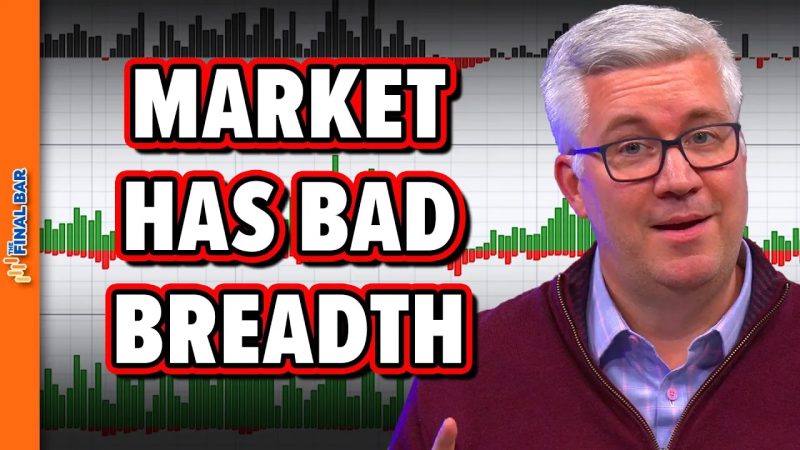Market breadth is a key indicator that is closely watched by investors and traders to gauge the overall health of the stock market. It refers to the number of advancing and declining stocks within a particular market index. When market breadth is strong, it indicates broad participation and support across various sectors and industries, suggesting a healthier and more sustainable market rally. Conversely, poor market breadth can be a cause for concern as it may signal underlying weakness and lack of widespread market support.
One of the factors that can contribute to poor market breadth is sector rotation. This occurs when investors shift their focus and capital from one sector to another, leading to diverging performance among different sectors. As a result, only a handful of sectors may be driving the market higher, while the majority of sectors are lagging behind. This lack of broad participation can be a warning sign of a market rally that is not supported by a diverse range of stocks.
Economic factors can also impact market breadth. For example, during times of economic uncertainty or recession, investors may become more risk-averse and focus on defensive sectors such as utilities and consumer staples. This flight to safety can lead to a narrow market rally with only a few defensive sectors outperforming, while other sectors struggle to gain traction. In such situations, poor market breadth may reflect concerns about the overall health of the economy and corporate profits.
Additionally, market breadth can be influenced by market sentiment and investor psychology. In periods of extreme optimism or pessimism, investors may become overly focused on a few high-flying stocks, leading to a concentration of buying or selling pressure in those stocks. This can distort market breadth and create a disconnect between the performance of a handful of stocks and the broader market. As a result, poor market breadth during such periods may be a sign of irrational exuberance or excessive pessimism in the market.
In conclusion, while poor market breadth is not necessarily a signal of an impending market crash, it is still an important indicator to monitor as it can provide valuable insights into the underlying strength and sustainability of a market rally. By paying attention to market breadth along with other key indicators, investors can make more informed decisions and better navigate the complexities of the stock market.


